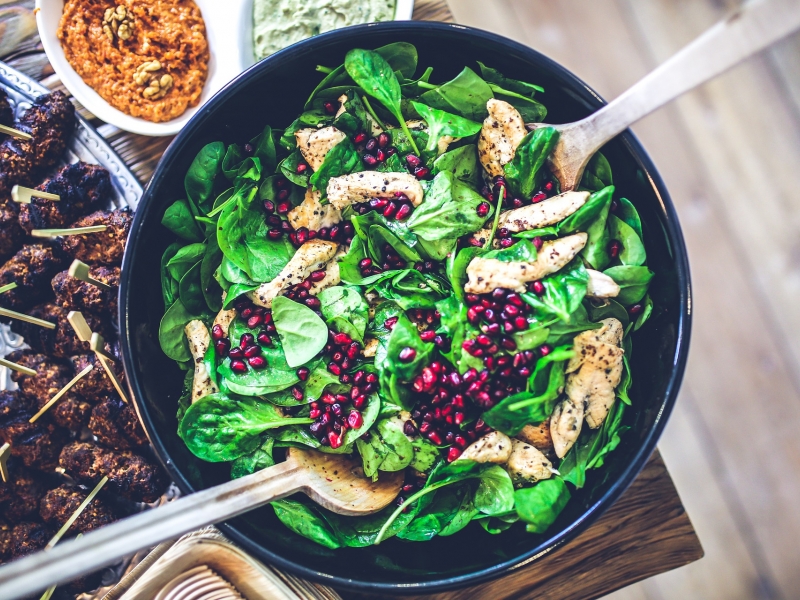It pays not to underestimate proper nutrition during pregnancy. Everything you eat will affect your baby’s development. What should not be missing in a balanced diet for a mother to be, and what is best to avoid?
If you have not been too concerned about food and its nutritional value so far, pregnancy can be a great opportunity to start living a little healthier.
One or two servings?
It was once said that mothers-to-be should eat for two. However, that is no longer the case today, because we know that basal metabolism increases by only about a quarter during pregnancy. So you definitely don’t have to load double portions onto a plate. Treat yourself to a slightly larger portion, but don’t overeat.
The essentials on your plate
Protein is an indispensable component of food. Try to increase your intake of them during pregnancy. Animal proteins contain rare amino acids that the human body cannot produce on its own. You can find them in dairy products or meat. A bowl of nuts or lentil soup will also supply the body with them.
Vitamins, minerals
Folic acid plays an important role during conception. Leafy vegetables contain the highest amounts. But beware, a large part of it is destroyed by boiling, so treat yourself to raw greens.
Calcium is essential for building both the mother’s and baby’s bones, for blood clotting and to keep nervous-muscular system in good working order. Milk, cheese and yoghurts or the already mentioned leafy vegetables, nuts and seeds have the largest amounts.
Of the vitamins do not forget vitamin C, which supports the immune system and also helps to absorb the iron in the foods that we eat. The ideal supplement is in the form of fresh vegetables.
Vitamin D is also important, which is the basis for forming bone tissue in the baby. The easiest way to form it in the body is to go out in the sun regularly. But don’t overdo it, beware of the adverse effects of UV radiation.
It is also necessary to have enough iron during pregnancy. Iron can be found, for example, in spinach, liver, beef or chicken. It can also be found in dark, leafy vegetables, a portion of lentils, white beans, chickpeas, sesame and sunflower seeds, bean sprouts, tofu or nuts. You can also try seaweed.
What to cut out
You should avoid alcohol during pregnancy. It is best to cut it out it altogether. Also watch how much coffee or black tea you consume. A small amount (a cup per day) does not harm the baby, but in higher doses it can adversely affect its development.
Also pay attention to uncooked animal foods, such as raw pâtés, steak tartare and so on.
Soft and blue cheeses, such as Brie or Stilton, made from unpasteurized milk also pose a risk due to infection by listeria bacteria, which can lead to miscarriage or premature birth. They are not sold over the counter in Czech shops, but more caution is in order with foreign cheeses or homemade cheeses.

